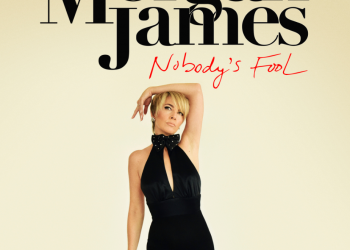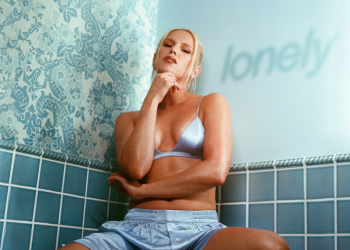R&B/soul singer India Arie is laughing at the idea that she would actually bleach her skin, following allegations that she was "lightened" on cover artwork for her latest single.
Addressing those allegations via Twitter Friday, Arie said she loves herself and there is no way that she would endanger her health by using bleaching soaps and things like that.
"Personally speaking I'm happy to say I have NOT BLEACHED my skin LOL! ROTF at the thought," Arie shared on Twitter, following up with a list of reasons why.
1. I wouldn't endanger my health that way
2. i'm so in love with myself I have no DESIRE to BLEACH myself. Lol
3. The GLOW you see IS (magnificent) lighting
4. THE LIGHT you see, Well thats all ME!!
Looking beyond the issue of her single cover, India Arie says racism/colorism is so much larger of an issue…
"Politically speaking racism/colorism in the black community is a MUUUUUUUCH larger THAT I'd LOVE to "shed light on"..that conversation IS REAL, …let's keep talking. #SongVersation #soulbirdsworldwide Big love to ALL #soulbirdsworldwide," wrote Arie.
Thoughts?
There’s been a lot of controversy surrounding India Arie recently, and it all has to do with her latest magazine cover. In the image, fans noticed that India appeared much lighter than usual—leading some people to believe she was skin bleaching. But now, India is speaking out about what really happened in an effort to clear up any misconceptions.
India Arie is one of the most influential R&B artists in recent years, known for her powerful lyrics and uplifting message. Her work has garnered respect from music lovers worldwide — so when pictures surfaced of her looking significantly fairer on the cover of Jet magazine, many were confused. Was this evidence that she had lightened her complexion? The internet quickly began buzzing with rumors; but luckily, India set the record straight once and for all.
In an interview with Hip Hollywood Live, India denied any involvement with skin bleaching and revealed what actually went on behind-the-scenes leading up to the photo shoot. Read on to learn more about why these accusations arose and how India responded!
Background Information
India Arie is an American singer-songwriter, actress, and record producer. She has been in the music industry since 2000 when her debut album ‘Acoustic Soul’ was released. Recently, she stirred up some controversy after sharing a cover photo of her upcoming single ‘That Magic’ on social media platforms. The image showed India with significantly lighter skin than usual, leading to accusations of skin bleaching from fans and critics alike.
In response to these claims, India took to Twitter and Instagram to firmly deny them. In her statement, she explained that the difference in color was due to lighting rather than any intentional manipulation or alteration of her appearance. She also addressed criticisms about how the cover didn’t accurately represent what people would see if they met her in person – stating that this wasn’t necessarily important because it was still a powerful representation of who she is as an artist.
Despite all this back-and-forth between India and her supporters/critics over the issue, one thing is certain: That Magic will be a must-listen for anyone interested in hearing India’s latest work and getting a glimpse into her artistic vision.
Explanation Of Controversy
The controversy surrounding India Arie’s single ‘That Magic’ cover photo has been a hot topic of discussion in the music industry. Many people were shocked to see that she had appeared much lighter on the album art, leading many to accuse her of skin bleaching. However, India was quick to deny these claims and explain that it was due simply to lighting rather than any intentional manipulation or alteration.
This incident raises important questions about representation in the media and how artists are expected to present themselves to their audience. On one hand, some argued that if an artist is going for a specific aesthetic then they should make sure that this is reflected accurately – even if this means altering their appearance slightly. On the other hand, others have said that everyone should be able to express themselves however they want without fear of criticism or judgement from the public.
Ultimately, this controversy highlights the importance of allowing artists creative freedom while also recognizing their responsibility to represent themselves as accurately as possible when putting out new work. It will be interesting to see what impact this issue has on future releases from India Arie and other musicians alike.
Conclusion
I. Conclusion
In conclusion, India Arie’s cover photo controversy has been put to rest as she successfully cleared up any misunderstanding surrounding the image. She made it clear that she had not lightened her skin and was actually wearing a wig with lighter colored extensions. It’s understandable why people may have thought otherwise due to how much the public is used to seeing darker models on magazine covers. The artist took this opportunity to make a statement about representation in media which I believe will help inspire other dark-skinned individuals who want to pursue modeling or be seen in magazines.
II. Impact of Statement
India Arie’s response addressed an important issue that many black women face when appearing in mainstream media – being judged by their appearance rather than their talent or body of work. Her simple yet powerful statement showed the world that no matter what shade your skin is, you should never let anyone tell you how you should look or feel ashamed for embracing your natural beauty. This incident proves just how influential and inspiring India Arie can be to those around her and serves as a reminder that we all need more voices like hers speaking out against colorism and racism in our society today.
III. Final Thoughts
Although this experience could have gone differently for India Arie, she stayed strong and stood up for herself throughout the entire process, proving once again why she is admired so highly among music fans everywhere. By vocalizing her opinion regarding colorism within the entertainment industry, she has shown us all that standing together and using our voices can create positive change for everyone involved.








